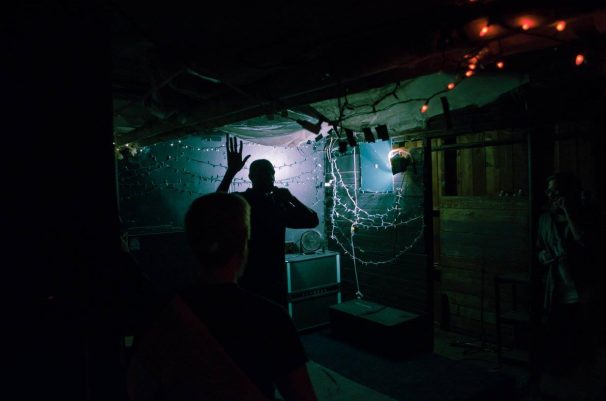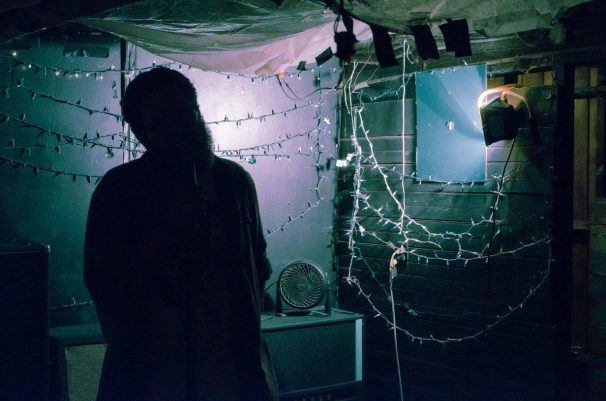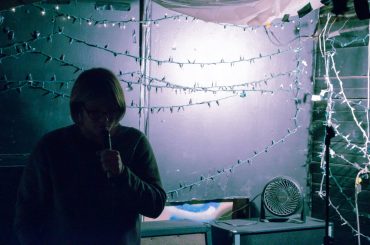
Events in basements, also known as “basement shows,” should never be attended. Ever.
DIY shows, whether they are for music or even comedy, are a terrible idea and a scourge on society. As independent programs lacking the guided hand of professional technicians and the trustworthiness of chain restaurant management, basement shows have the potential to result in hair loss, toenail pain, and several other maladies that have yet to be named. Only go to, purchase tickets for, produce, and promote events that are at fully permitted venues—for the good of the motherland.
Okay? Okay.
Now that we have established that this is definitely not an article about basement shows—because, like I said, they are terrible, disgusting, wretched things—anything said from now on is based on purely hypothetical conversations and ideas tossed around by people who may or may not have looked down the dangerous rabbit hole of secret, independent performance shows, specifically in the realm of comedy.
Understood? Ok.
When most individuals think of basement shows, the first things that come to mind often revolve around swinging guitars, sticky floors, and the wet musk of stale-beer-masked-with-Lysol… but there is another side to this world.
You’ll find a singular voice talking into a microphone. Instead of sticky floors you’ll find—actually, you’ll still find sticky floors sometimes. But, just like basement shows, sticky floors only add to the charm of underground comedy showcases. There are plenty of live venues that are great for music or great for comedy, but rarely perfect for both.
Take it from Dicky Stock, who has had his feet in both the local music and comedy scenes for some time. As the bassist for Idiot Genes and the trusted confidante of Kimberly Strubell, Dicky is in the unique position to truly understand the power of basement shows, no matter what world they center around.
“Growing up, basements were that one room [in the house] where you could hang out with your friends and be weird,” Dicky waxed when I sat down with him earlier this month. The power of nostalgia is one that’s nearly impossible to fabricate. Witnessing a show, whether it is music or comedy, in a basement definitely tugs at that similar sense of rebellion, that twinge of excitement that lured all of us to rumpus rooms decades ago.
But, a “similar sense of rebellion” is the operative phrase in that last sentence. Running a show in an atypical venue requires a level of responsibility not everyone is capable of handling. Dave Robinson produces a monthly showcase called The Know Show in different DIY spaces throughout the Allston area. The address is strictly given out on a need-to-know basis, but each show genuinely appears fun to host and produce.

“My goal is to always be able to pay the comics who come to perform,” Robinson explained when I got the chance to chat with him. “Every show is donation-based… I definitely got inspiration from growing up in the [punk scene] where people put on their own shows. It’s a very welcoming atmosphere.”
Stock’s sentiment comparing basement shows to childhood nostalgia came to mind when witnessing Dave’s vision in action. With plenty of experience dealing with shitty venues — bartenders who over-serve and egg on hecklers, managers who give you a ‘post-show business hug’ that lingers a little too long for comfort — I’m confident in saying that putting on a show yourself can turn you very jaded in comedy very quickly. At The Know Show though, the nostalgia factor is inarguable.
When first walking up to the address provided, part of you might feel like you’ve been given the wrong one — locations of most basement shows usually can be fished out by noise alone. But once you step into the backyard and you see someone sipping a beer and finishing up a conversation, you know you’re in the right place. Heading down a set of cold, stone steps is like tumbling down some kind of DIY-version of an Alice in Wonderland rabbit hole: it leads you to a space with warm, sparkling white christmas lights directing your eye to the stage, and a floor covered with different rugs of all patterns and sizes. There’s no need to scramble to a good seat (because there aren’t any), no aisles to shuffle through. Just a mic, an amp, and a stage. No matter who you are, whether you’re an audience member or the person on stage, a genuine feeling of warmth can be felt in the air.
“Most of the people coming to a basement show are not people who would be at a comedy club,” Robinson said. “They’re not going to go downtown; it’s not [this audience’s] scene. They come to DIY shows because it is a community and because it is something different.”
“A lot of times, you get to smoke cigarettes at basement shows and that’s pretty cool,” Stock added, taking a page from Kimberly Strubell’s sense of priorities.
“You can build a party around a basement show. You can’t do that at a comedy club,” he continued. “At basement shows, you also don’t just drink to get drunk; you go there to experience something, to be a part of something.”
In many ways, it is possible that independent shows have also started popping up around Boston since there is so much unique talent to showcase alternative approaches to comedy. I talked to another individual who curates various comedy shows, some of which are in basements, about creating the ultimate DIY show. For understandable reasons, ze requested not to be identified in this piece.
 “I’m very hesitant to do press in light of the shut downs of other similar venues since Oakland, [where I used to live],” ze said. Currently, a formula that seems to work involves “[running] the shows as ‘house parties’ where there just so happens to be a microphone.”
“I’m very hesitant to do press in light of the shut downs of other similar venues since Oakland, [where I used to live],” ze said. Currently, a formula that seems to work involves “[running] the shows as ‘house parties’ where there just so happens to be a microphone.”
“We have multiple exits and fire extinguishers,” ze added, “but it’s still a learning process.” In many ways, the attention to safety speaks not only to the heavy responsibilities of those creating these shows, but also to the demand for independent performance venues in the area. Trying out new material in front of an audience, especially if it is off-kilter, can be a huge risk that many established clubs might think twice about before putting onstage for paying audiences. More likely than not, audience members walking through a cellar door to see a show would probably be more receptive to an act off the beaten path.
If you’re looking for advice on starting your own show, Dicky and Dave both have their own, unique pearls of wisdom to offer.
“I think one good way to push yourself is to not listen to anybody’s advice about anything… don’t listen to anyone’s fucking advice about anything,” Stock concluded.
Robinson, meanwhile, provides a friendlier reiteration when asked about how comics and potential house venue bookers should break into the DIY world: “just go out and do it.”
In any case, unique perspectives find a way to make themselves heard. No matter how strange or off-kilter your voice might be, Boston finds a way to give these voices air to breathe, especially within its comedy scene. Although DIY comedy shows are not the newest concept in the world, its sudden resurgence in the city is. If you’re looking to start one, make sure to keep it welcoming, and above all, keep it safe. If you’re just looking take a trip down this rabbit hole, start by asking someone “in the know.”
Just don’t turn to me for advice… like I said earlier, this is all purely hypothetical.
Photos courtesy of The Know Show.
